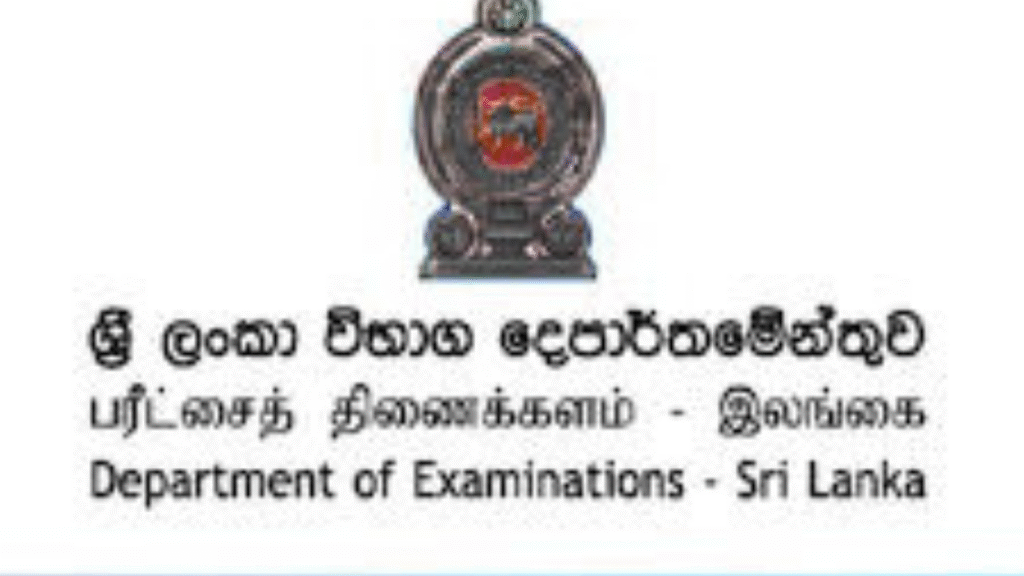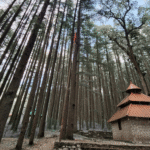The GCE Advanced Level, or A/L, is a big deal in Sri Lanka. It’s the final hurdle for high school students aiming for university or a solid career. Held every August, this exam shapes futures, opening doors to higher education and jobs. Whether you’re a student, parent, or just curious, understanding the A/L system can feel overwhelming. But don’t worry—this article breaks it down in a simple, human way. We’ll cover its structure, streams, preparation tips, and challenges, giving you a clear picture of what to expect in 2025 and beyond.
The A/L is more than a test; it’s a rite of passage for Sri Lankan youth. With the right approach, you can tackle it confidently. Let’s dive into the details to help you navigate this important step.
What is the GCE Advanced Level?
The GCE A/L is Sri Lanka’s national exam for students finishing secondary school, typically at age 18. Administered by the Department of Examinations, it qualifies students for university admission. Introduced in the British era, it’s evolved into a rigorous two-year program (Grades 12–13). Students choose one of four streams: Physical Science, Biological Science, Commerce, or Arts. Each stream involves three main subjects, plus General English and a General Knowledge paper. Results, graded from A to F, determine university entry based on Z-scores, a system ranking performance. In 2023, over 281,445 students sat for the A/L, showing its scale. Success here is key to studying medicine, engineering, or other competitive fields.
Structure of the A/L Exam
The A/L exam is a structured process designed to test knowledge and skills. Held annually in August, it spans multiple subjects over weeks, with results out by December. Students pick three subjects based on their stream, alongside mandatory General English and General Knowledge tests. Exams mix multiple-choice, short-answer, and essay questions, varying by subject. For example, Physics includes practical components, while Arts subjects like History focus on essays. The grading system (A to F) uses Z-scores to rank students for university. Exams are offered in Sinhala, Tamil, and English, ensuring accessibility. The Department of Examinations oversees question-setting and evaluation, maintaining high standards across Sri Lanka’s 2,678 exam centers (2023 data).
Streams and Subject Choices
Students choose from four streams: Physical Science (e.g., Physics, Chemistry, Maths), Biological Science (e.g., Biology, Chemistry, Physics), Commerce (e.g., Accounting, Economics, Business Studies), or Arts (e.g., History, Logic, Languages). Each stream has core and optional subjects, allowing flexibility. For instance, Arts students might pick Sinhala, Political Science, or Media. Choosing a stream depends on career goals—Physical Science suits engineering, while Commerce fits business careers. Students must confirm subjects in Grade 12, as changes later are tough.
Grading and University Admission
A/L results use a grading scale: A (Distinction), B, C, S (Pass), and F (Fail). Z-scores rank students based on performance relative to peers, determining university entry. For example, a Z-score above 1.5 often secures spots in competitive courses like Medicine. In 2023, 173,444 students qualified for university from 281,445 candidates. General English and General Knowledge don’t affect Z-scores but are required for completion. Results guide placement in Sri Lanka’s 17 public universities or private institutes.
How to Prepare for A/L Exams
Preparing for A/Ls requires focus and strategy. With two years to study, students need discipline to cover vast syllabi. Start by understanding your stream’s subjects and past papers. Create a study schedule, balancing weak and strong areas. Group study, tuition classes, and online resources can help. Past papers, available on the Department of Examinations’ website (www.doenets.lk), are gold for practice. Time management is crucial—allocate hours daily and take breaks to avoid burnout. In 2023, top performers often studied 6–8 hours daily, blending schoolwork and self-study.
Effective Study Techniques
Break subjects into manageable chunks and use active learning, like summarizing notes or teaching peers. Practice past papers to spot patterns—Physics often repeats mechanics questions, for example. Flashcards work well for Arts subjects like History. Set weekly goals, like mastering organic chemistry or essay writing. Group study helps clarify doubts, but avoid distractions. Stay consistent, aiming for 4–6 hours of focused study daily, and review regularly to retain concepts.
Role of Tuition Classes
Tuition classes are a staple in Sri Lanka, with 70% of A/L students attending them (2023 estimate). They offer structured lessons, mock exams, and expert guidance. Popular tutors in Colombo or Kandy charge LKR 1,000–3,000 per session. However, self-study with past papers can be just as effective if you’re disciplined. Choose tutors wisely—focus on those who explain concepts clearly, not just drill answers. Balance tuition with schoolwork to avoid overload.
Challenges Students Face
The A/L journey isn’t easy. Students face academic pressure, mental stress, and logistical hurdles. The syllabus is vast, and competition for university spots is fierce—only 61% of 2023 candidates qualified. Rural students often lack access to quality tuition or resources compared to urban peers. Parental expectations and fear of failure add emotional strain. Time management is another hurdle; many struggle to balance studies and extracurriculars. Despite these challenges, resilience and planning can lead to success.
Academic Pressure and Stress
The A/Ls are high-stakes, with results deciding university entry. Students often feel overwhelmed by the syllabus—Physical Science covers 12 units per subject, for example. Parental and societal pressure to pursue fields like Medicine intensifies stress. In 2023, counseling services reported a rise in A/L-related anxiety. To cope, practice mindfulness, take short breaks, and seek support from teachers or peers. A balanced routine with sleep and exercise helps too.
Access to Resources
Urban students in Colombo or Galle have better access to libraries, internet, and top tutors than rural students in areas like Monaragala. Online platforms like e-thaksalawa.lk help bridge this gap, offering free past papers and lessons. However, unreliable internet in remote areas remains an issue. Schools and NGOs are working to provide books and digital tools, but students must also leverage free resources creatively.
Importance of A/L for Future Goals
The A/L is a gateway to higher education and careers in Sri Lanka. A strong performance opens doors to public universities, which are free and prestigious. For example, Medicine requires Z-scores above 1.8, while Arts programs may accept 1.0. Beyond university, A/L results influence job opportunities in fields like banking or government, where qualifications matter. Even students pursuing vocational paths benefit from the discipline and knowledge gained. In 2023, 17,000 students entered professional courses via A/L results, showing its broad impact.
University and Career Pathways
High A/L scores secure spots in competitive programs like Engineering (University of Moratuwa) or Law (University of Colombo). Commerce students often pursue accounting certifications (CA Sri Lanka), while Arts students enter teaching or journalism. Lower scores still qualify for diploma programs or private universities. Career paths depend on stream—Biological Science suits healthcare, Physical Science fits tech. Research your dream career early to pick the right stream.
Alternative Options After A/L
Not everyone aims for university. Vocational training, like IT courses at SLIIT or hospitality programs, is a solid alternative. Students with lower Z-scores can join private institutes or pursue international exams like ACCA. Some opt for jobs in retail or tourism, using A/L as a stepping stone. In 2023, 20% of A/L candidates chose non-university paths, showing the exam’s flexibility for diverse goals.
Tips for Success in 2025
For 2025 A/L candidates, start early and stay organized. Build a study plan covering all subjects, focusing on weak areas. Use past papers to practice time management—exams like Chemistry require quick thinking. Join study groups for motivation, but don’t rely solely on tuition. Stay healthy with proper sleep and diet; burnout hurts performance. Check www.doenets.lk for updates on syllabi or exam dates. Finally, believe in yourself—confidence is half the battle. Top 2023 performers emphasized consistency and self-belief as key to their A grades.
Conclusion
The GCE A/L in Sri Lanka is a challenging but rewarding step toward your future. It tests knowledge, resilience, and planning, shaping paths to university or careers. By understanding its structure, choosing the right stream, and preparing smartly, you can succeed. Challenges like stress and resource gaps are real, but with discipline, past papers, and support, they’re manageable. Whether aiming for Medicine, Engineering, or alternative paths, the A/L is your launchpad. Start preparing for 2025 now, stay focused, and trust your hard work will pay off.
Disclaimer: Exam details may change. Check www.doenets.lk for updates. Seek guidance from teachers or counselors for personalized advice.



